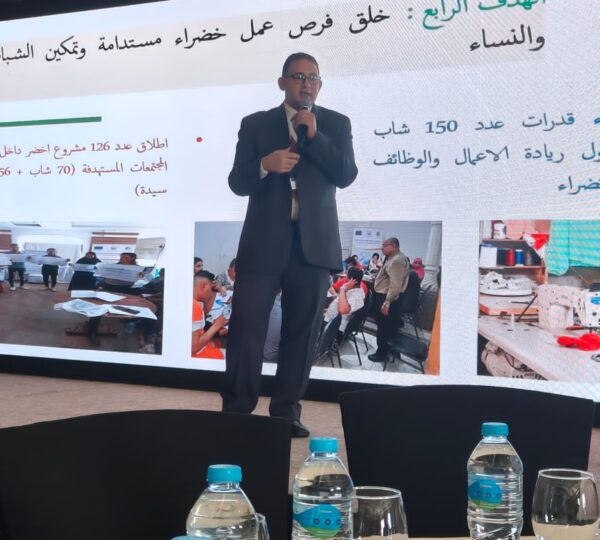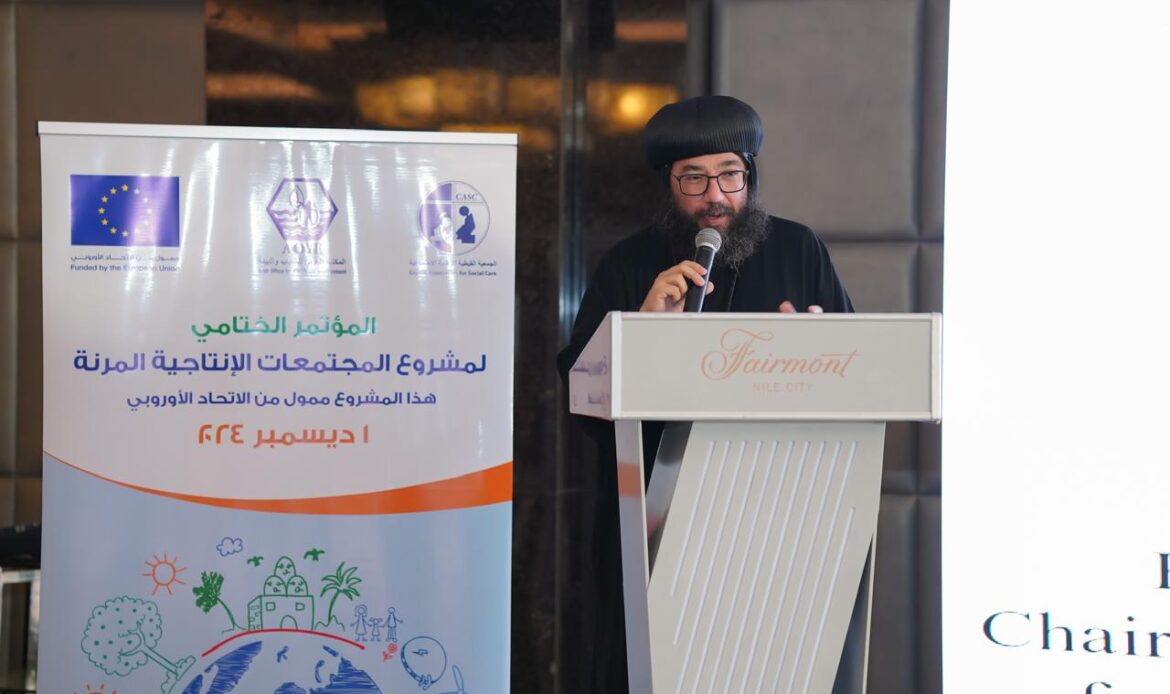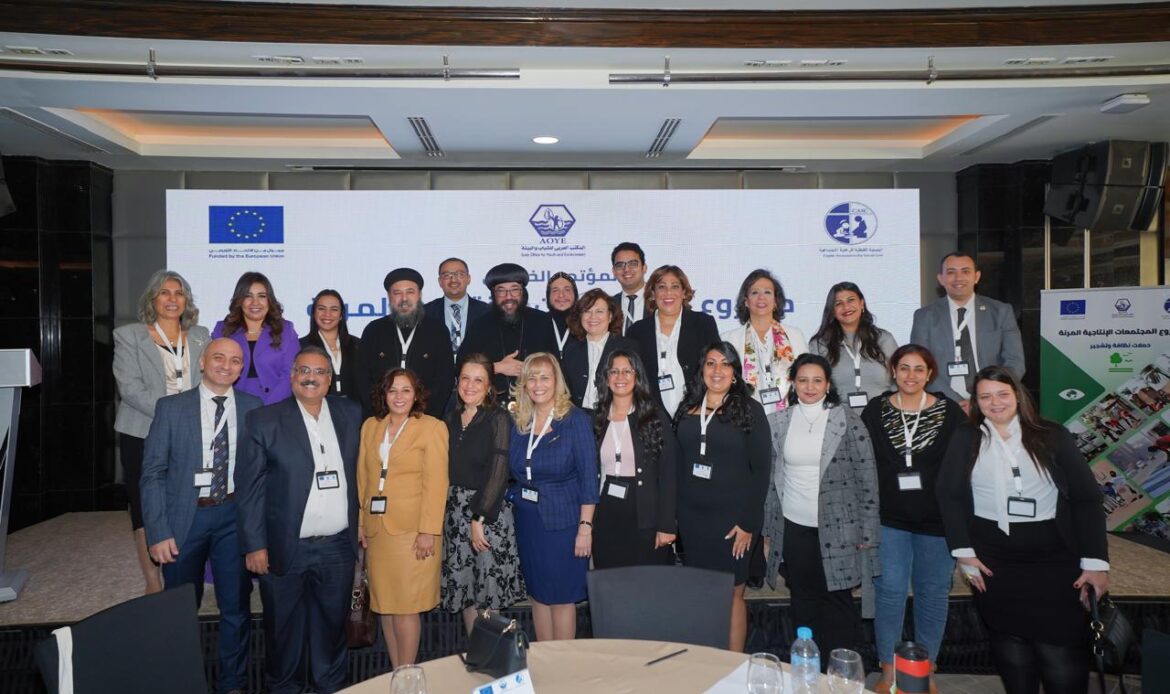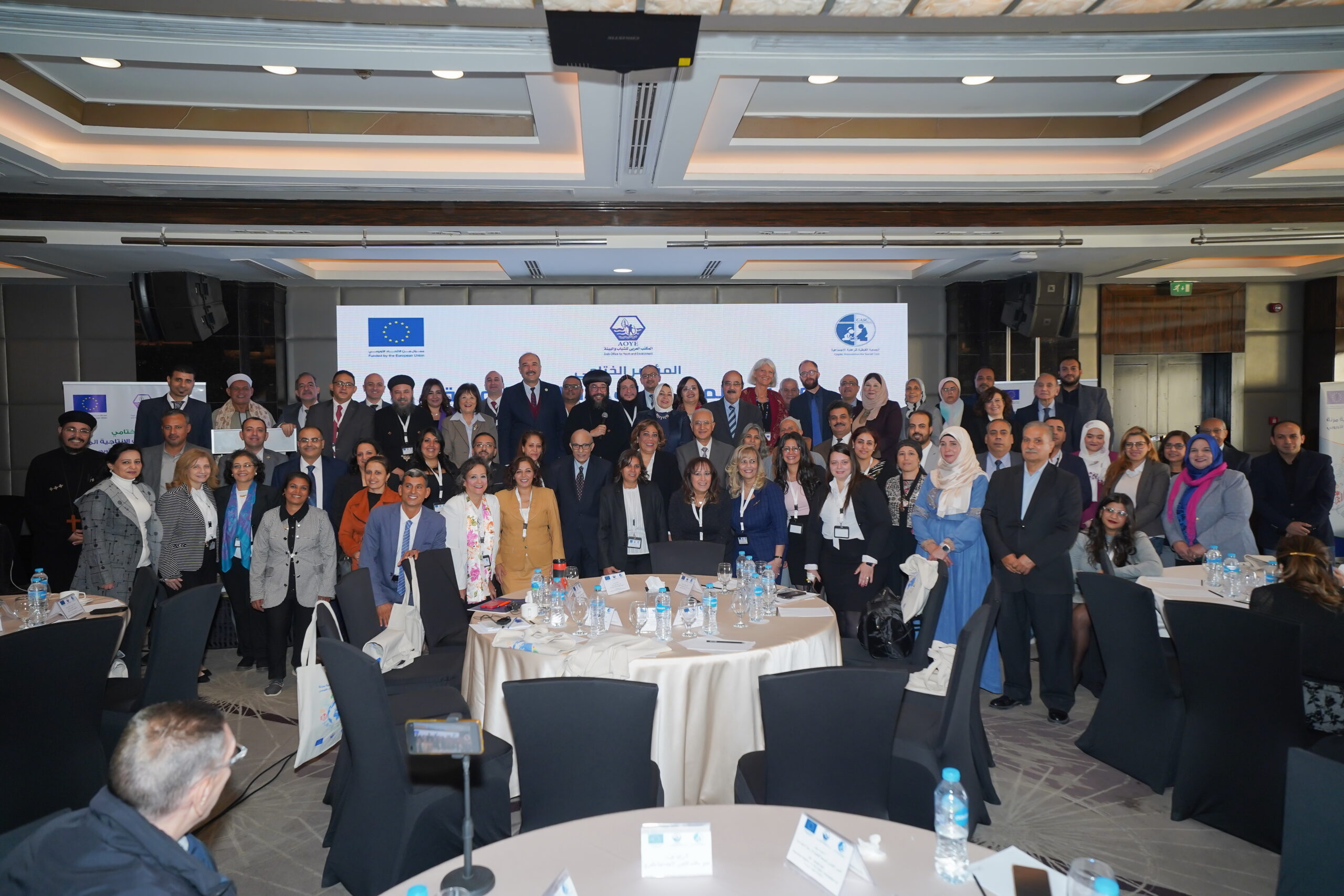The Coptic Association and the Arab Office for Youth and Environment Celebrate the Conclusion of the Resilient Productive Communities Project
The Coptic Association for Social Welfare and the Arab Office for Youth and Environment (AOYE) held the final conference for the Resilient Productive Communities project. Implemented over four years with funding from the European Union, the project aimed to build local communities better equipped to adapt to climate change. It was carried out in the villages of Al-Fant and Galila in the Al-Fashn district of Beni Suef Governorate, as well as in the Zakat Foundation area of the Marg district in Cairo.
Anne Kofoed, Advisor to the EU Delegation in Egypt, highlighted the project’s objective of improving environmental conditions and optimizing the use and availability of resources in targeted areas. In her remarks, she emphasized the project’s multifaceted approach, which focused on waste reduction in implementation areas, the use of renewable energy, resource conservation, and job creation through green employment opportunities. The project also sought to enhance communities’ climate resilience and introduce sustainable agricultural technologies.
The project was designed based on the specific needs of the targeted areas, employing a multi-stakeholder methodology that significantly contributed to its success. Collaboration between all participating entities, including civil society organizations such as the Coptic Association for Social Welfare and the Arab Office for Youth and Environment, alongside government ministries of Environment, Social Solidarity, and Water Resources and Irrigation, played a vital role. This partnership aligned with the goals of Egypt Vision 2030, fostering synergies between civil society and government efforts to achieve sustainable development objectives.




